General
| Name of initiative
|
Interfaith Rainforest Initiative
|
| LPAA initiative
|
No
|
| NAZCA Initiative
|
No
|
| Website address
|
interfaithrainforest.org
|
| Related initiatives
|
|
| Starting year
|
2017
|
| End year
|
|
| Secretariat
|
Joseph Corcoran, joseph.corcoran@unep.org
|
| Organisational structure
|
|
| Geographical coverage
|
Global, Latin America and The Caribbean, Africa, South East Asia
|
| Name of lead organisation
|
Interfaith Rainforest Initiative
|
| Type of lead organisation
|
United Nations or Specialised agency, Network/Consortium/Partnership
|
| Location/Nationality of lead organisation
|
United States of America
|
Description
| Description
|
The Interfaith Rainforest Initiative was launched at the Nobel Peace Center in Oslo, Norway, on 19 June 2017. In a first-of-its-kind summit, Christian, Muslim, Jewish, Buddhist, Hindu and Taoist religious leaders joined forces with indigenous peoples from Brazil, Colombia, the Democratic Republic of Congo, Indonesia, Meso-America and Peru to make the protection of rainforests an ethical priority for the world’s faith communities.
|
| Objectives
|
The Interfaith Rainforest Initiative is an international, multi-faith alliance that aims to bring moral urgency and faith-based leadership to global efforts to end tropical deforestation. The Interfaith Rainforest Initiative is a platform for religious leaders and faith-based communities to work hand-in-hand with indigenous peoples, governments, civil society and businesses on actions that protect rainforests and safeguard those that serve as their guardians.
|
| Activities
|
The Interfaith Rainforest Initiative works globally and in major rainforest countries on the mobilization of faith- based leadership, advocacy and on-the-ground action to protect rainforests. We currently work in Brazil, Colombia, Democratic Republic of the Congo, Indonesia and Peru, which together contain more than 70% of the world’s remaining tropical forests. Our work in each country is focused on education and training, program development, communications and public outreach, faith-based mobilization, political advocacy and connecting religious leaders with allies from across sectors to multiply their collective impact.
|
| One or two success stories achieved
|
|
Monitoring and Impacts
Sustainable Development Impact:
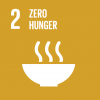
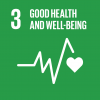
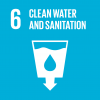


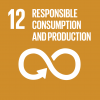

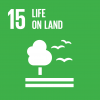

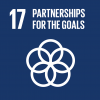
| Function of initiative
|
Political dialogue, Capacity building
|
| Activity of initiative
|
Advocacy, Awareness raising and outreach, Training and education, Policy planning and recommendations
|
| Indicators
|
|
| Goals
|
|
| Comments on indicators and goals
|
|
| How will goals be achieved
|
|
| Have you changed or strenghtened your goals
|
|
| Progress towards the goals
|
|
| How are you tracking progress of your initiative
|
|
| Available reporting
|
|
Participants
| Participants
|
Number
|
Names
|
| Members
|
8
|
|
| Companies
|
0
|
|
| Business organisations
|
0
|
|
| Research and educational organisations
|
0
|
|
| Non-governmental organisations
|
8
|
Norway’s International Climate and Forest Initiative - NICFI (Norway), Rainforest Foundation Norway (Norway), United Nations Environment Programme - UNEP (Kenya), Forum on Religion and Ecology at Yale University (United Kingdom), GreenFaith (USA), Parliament of the World’s Religions (USA), Religions for Peace (USA), World Council of Churches (Switzerland).
|
| National states
|
0
|
|
| Governmental actors
|
0
|
|
| Regional / state / county actors
|
0
|
|
| City / municipal actors
|
0
|
|
| Intergovernmental organisations
|
0
|
|
| Financial Institutions
|
0
|
|
| Faith based organisations
|
0
|
|
| Other members
|
0
|
|
| Supporting partners
|
0
|
|
| Number of members in the years
|
|
| Have only national states as participators
|
No
|
Theme
| Transport
|
Agriculture
|
Forestry
|
Business
|
Financial institutions
|
Buildings
|
Industry
|
Waste
|
Cities and subnational governments
|
Short Term Pollutants
|
International maritime transport
|
Energy Supply
|
Fluorinated gases
|
Energy efficiency
|
Renewable energy
|
Supply chain emission reductions
|
Adaptation
|
Other
|
Resilience
|
Innovation
|
Energy Access and Efficiency
|
Private Finance
|
| No
|
No
|
Yes
|
No
|
No
|
No
|
No
|
No
|
No
|
No
|
No
|
No
|
No
|
No
|
No
|
No
|
No
|
No
|
No
|
No
|
No
|
No
|
Last update: 4 August 2020 12:22:23
Not only have national states as participators











